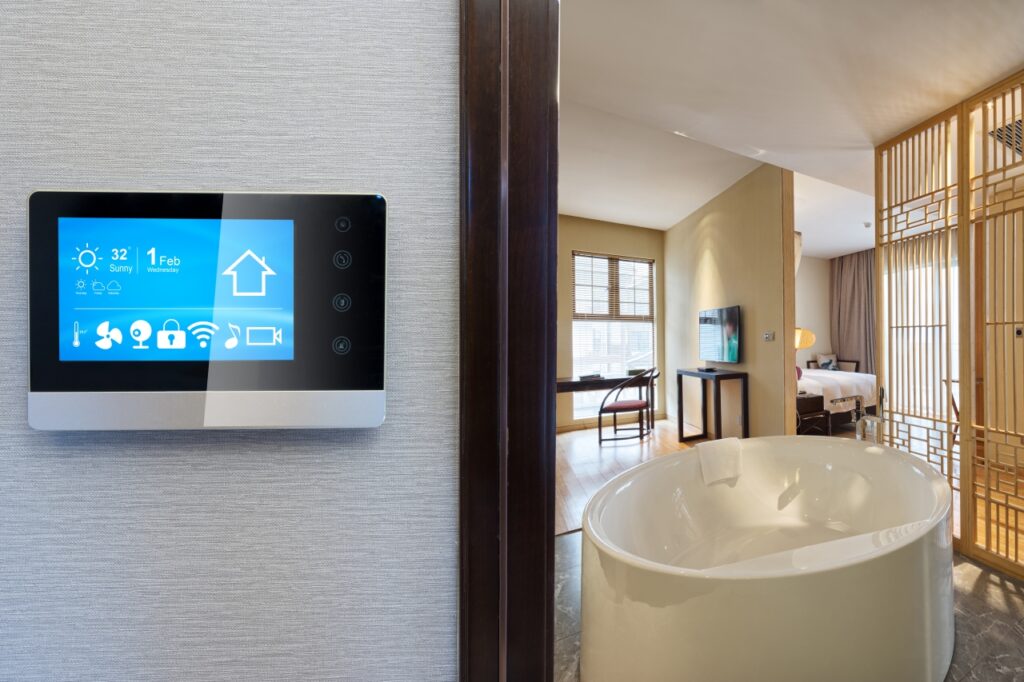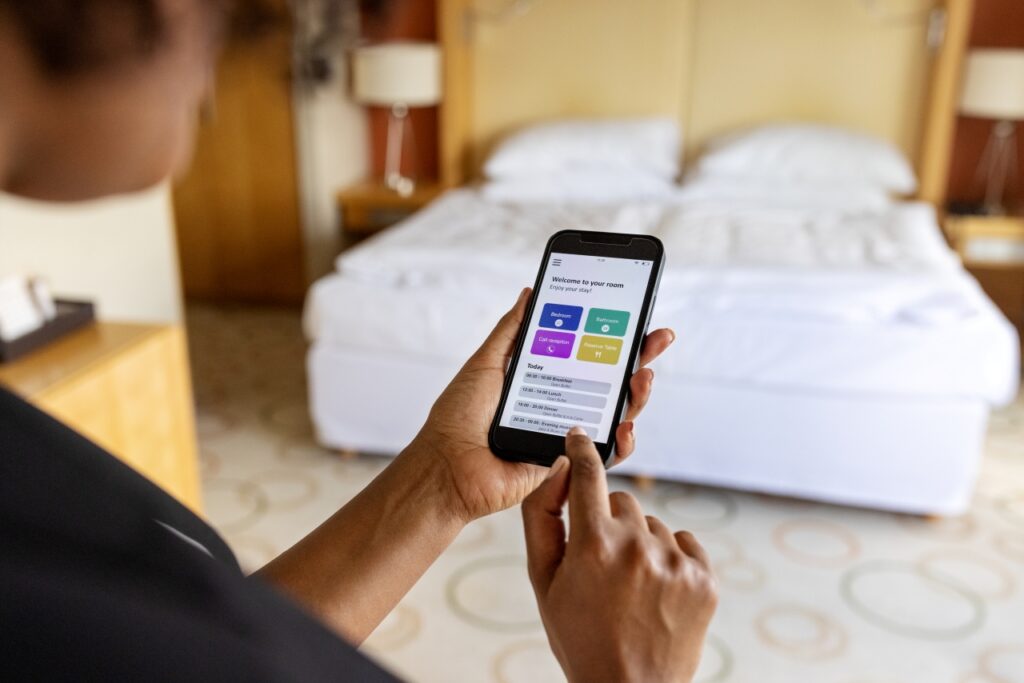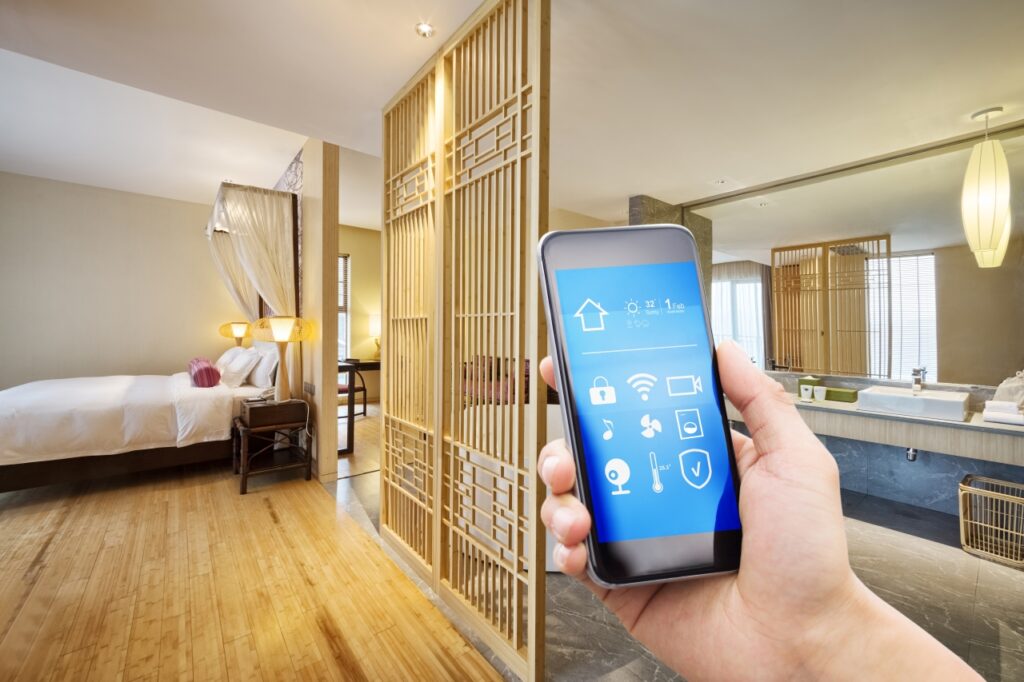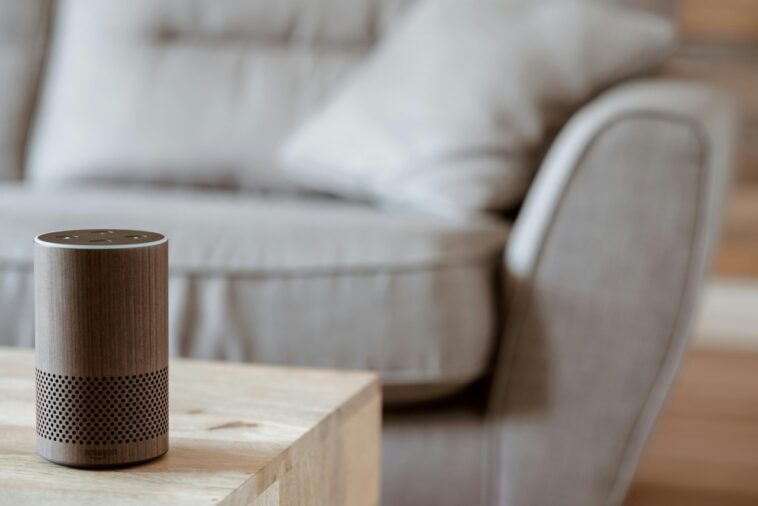In today’s fast-paced world, particularly in the hospitality industry, the concept of the “smart hotel” has evolved from a futuristic vision into a present-day reality. In fact, given the rapid pace of technological advancement, today’s smart hotels may soon become outdated. This acceleration is forcing hospitality businesses to push further and faster to implement technologies to enhance their guests’ experiences. Additionally, technology has democratised business operations, increasing competition and requiring hotels to evolve by optimising operations and promoting sustainability. In this article, we explore the latest advancements in smart hotel technology, guests’ trends and recent case studies that exemplify these innovations, and how hotels are satisfying new guests’ needs.

What is a smart hotel?
A smart hotel integrates cutting-edge technologies. This concept is not new, but it has been redefined in the past couple of years. Elements such as the Internet of Things (IoT) and mobile applications to create a seamless and personalised environment for guests were the priorities years ago, but now Artificial Intelligence (AI) is at the top of the list. The concept of smart hotels now includes automated room controls, AI-driven concierge services, keyless entry systems, and robust data analytics to anticipate and meet guest preferences. These technologies not only elevate the guest experience but also enhance operational efficiency and sustainability. Smart hotels must constantly evolve to become ‘smarter’ each day.

Recent technological advancements you can’t miss in your smart hotel
- Mobile integration and keyless entry
The proliferation of smartphones has led to the adoption of mobile technologies that allow guests to manage various aspects of their stay, just as they manage other aspects of their daily lives. Mobile apps in hotels enable digital check-ins and check-outs, digital room keys, and control of in-room settings such as lighting and temperature. This shift towards mobile integration reduces physical contact and enhances convenience as it has become an integral part of daily life. To cater to this new way of managing our environment, more and more hotels are offering their own mobile apps to control not only lighting and temperature, but also content in smart TVs and in-room sound systems.
- AI-driven services
AI has already become a keystone in delivering personalised guest services. Whether or not your hotel has adopted AI, it is undeniable that this technology is transforming industries worldwide. AI-powered chatbots and virtual assistants provide real-time assistance, handling inquiries, making reservations, and offering tailored recommendations. These systems learn from guest interactions to continually find patterns and refine their responses. This not only increases efficiency, but it also offers more personalised experiences. A growing number of hospitality businesses are introducing AI agents that are capable of conversing in multiple languages, handling inquiries, and processing bookings and requests almost instantly, and at any time of the day and night, enhancing convenience, customer service, and overall operational efficiency.
- IoT-enabled room automation
IoT devices have been transforming in-room experiences for years and they will continue to do so. By incorporating presence-activated technology, such as motion and occupancy sensors, hospitality businesses can be more efficient and sustainable in the way they use their resources. Additionally, the data collected from these sensors enables business managers to make more informed decisions. Another IoT device that is on the rise is voice-activated controls. These allow guests to interact with their environment seamlessly, through systems like Alexa or other smart assistants. This is something that customers request from hotels nowadays, since they are used to this comfort at home. In hotels, guests look for a home away from home, therefore, it makes sense that at least the industry offers the same value or higher than what guests enjoy in their own homes. Smart hotels should therefore introduce smart assistants (those like Alexa) to extend convenience, personalisation and comfort.
- Enhanced connectivity and security
Reliable and high-speed internet connectivity is the first step to enable other cutting-edge innovations. However, security is also a fundamental pillar of the smart hotel experience. Hotels are increasingly integrating biometric technology – such as facial recognition and fingerprint scanning – to provide seamless access to rooms, amenities, and facilities. Some hotels are using facial recognition for check-in, room entry, and payments, eliminating the need for traditional key cards and helping secure and control transactions.
From innovation to impact: The role of education in smart hospitality
The integration of smart technologies in hotels is no longer just a trend – it is a transformative force reshaping every dimension of the hospitality industry. From hyper-personalised guest experiences to data-driven operational efficiency and more sustainable models, smart innovation is redefining excellence. But as the concept of the “smart hotel” evolves, success will increasingly depend not on adopting technology alone, but on cultivating the talent capable of shaping and leading that transformation. This is where education plays a decisive role.

At Les Roches, we believe that the future of hospitality lies at the intersection of technological innovation, service excellence, and human-centric leadership. This is why our curriculum goes far beyond theory: it immerses students in real-world applications of AI, automation, and digital transformation across key disciplines such as revenue management, operations, customer experience, and marketing. Our students do not just learn about innovation, they experiment, test, and build it, through initiatives like the Spark Innovation Sphere. This global hub of hospitality innovation serves as a living laboratory where students co-develop solutions with startups and industry leaders. They gain hands-on experience with AI-powered tools, predictive analytics, and smart hotel technologies, from automated F&B operations to guest personalisation systems. Innovation is also embedded across the academic journey. Students engage in research projects analysing the impact of emerging technologies on service quality, sustainability, and employee experience. Partnerships with tech and hospitality companies bring the latest industry insights directly into the classroom through guest lectures, simulations, and case-based learning.

Ultimately, the success of smart hospitality depends on leaders who can combine technological fluency with emotional intelligence and strategic vision. At Les Roches, we are educating those leaders. Not for the world of yesterday, but for the digital, dynamic, and human-centered hospitality of tomorrow.
Susana Garrido is Director of EdTech and Spark Innovation Project Director at Les Roches Marbella.



